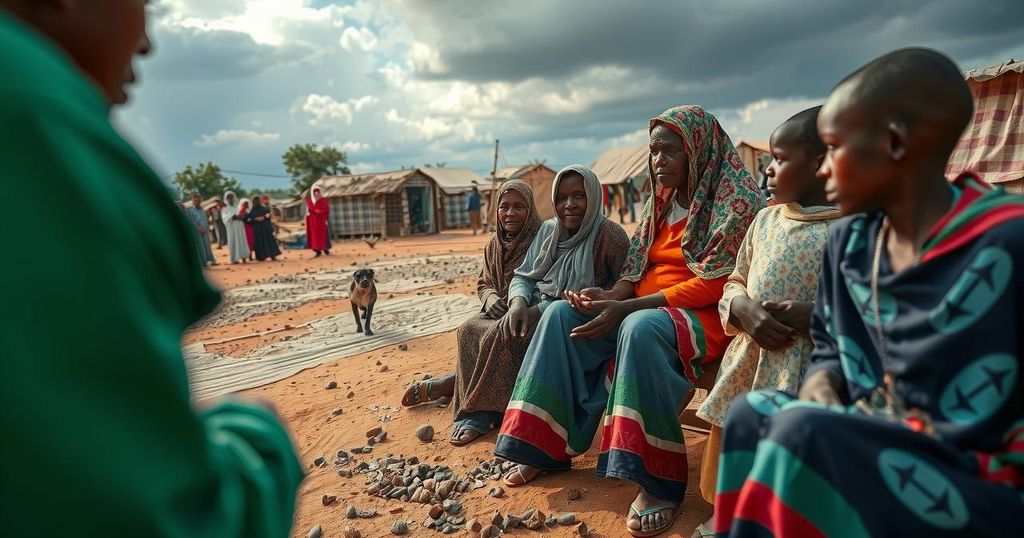Somali Climate Refugees in Dadaab Face Growing Crisis Amid Climate Disasters

The EJF report reveals that climate disasters, particularly droughts and flooding, are triggering a new wave of Somali refugees in Dadaab, where the population has surged to over 320,000 individuals. It illustrates the severe impacts of climate change on livelihoods and food security in the Horn of Africa, calling for urgent global intervention to protect climate refugees and address the humanitarian crisis.
The Environmental Justice Foundation (EJF) has published a report highlighting the increasing toll of climate disasters on Somali refugees in the Dadaab Refugee Camp. These individuals have been impacted disproportionately by climate change despite contributing minimally to global carbon emissions. The camp, originally designed for 90,000 people, now shelters over 320,000 refugees, a significant increase due to ongoing droughts and conflicts. As of 2023, approximately 23.5 million people in the region face acute food insecurity, with widespread suffering documented among those who have lost livestock and crops due to climatic changes. Personal testimonies from camp residents reflect the harrowing realities faced by families striving to survive amid extreme conditions. The report urges a global response to safeguard climate refugees and emphasizes the urgent need for international legal protections to address this growing crisis.
The report by the Environmental Justice Foundation sheds light on the plight of Somali climate refugees in Dadaab, emphasizing the link between severe climatic events and the surge in refugee populations in the Horn of Africa. It details the devastating impacts of climate change, such as increased displacement and food insecurity, suggesting that this crisis will only worsen without immediate international intervention and support. As the camp’s population soars due to climate-related factors, the report underscores the urgent need for systemic changes to protect vulnerable populations who face the brunt of climate adversity.
In conclusion, the EJF report underscores the link between climate change and the surge of Somali refugees in Dadaab, revealing a harsh reality compounded by extreme weather and ongoing humanitarian crises. With millions facing food insecurity and displacement, the call for urgent international action is paramount. It advocates for comprehensive legal frameworks aimed at protecting climate refugees, stressing the moral imperative to support those most affected by climate-induced hardships.
Original Source: ejfoundation.org






